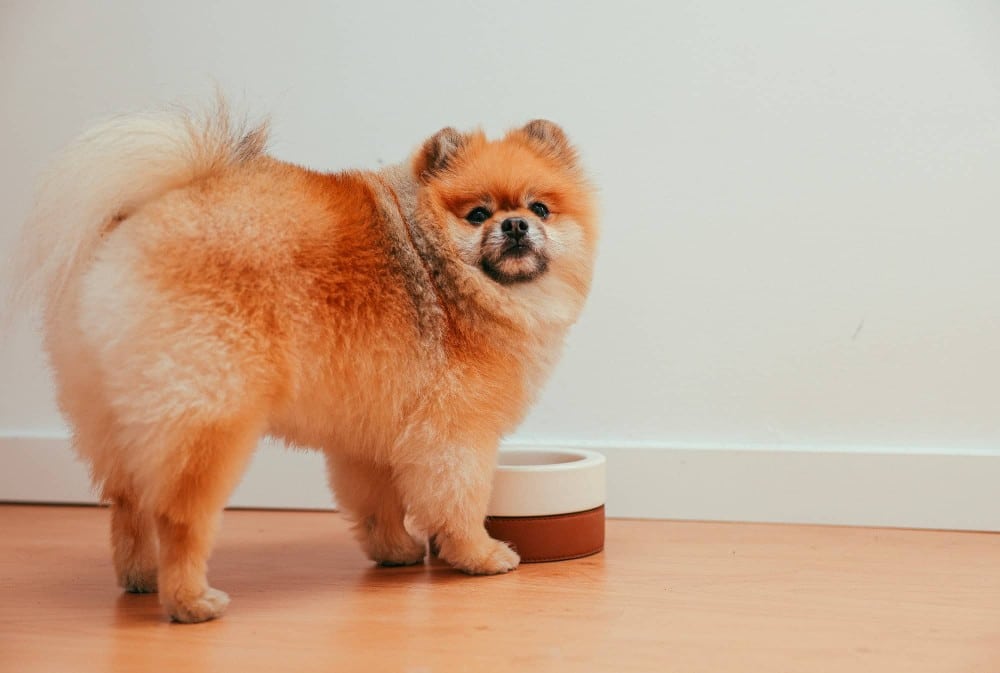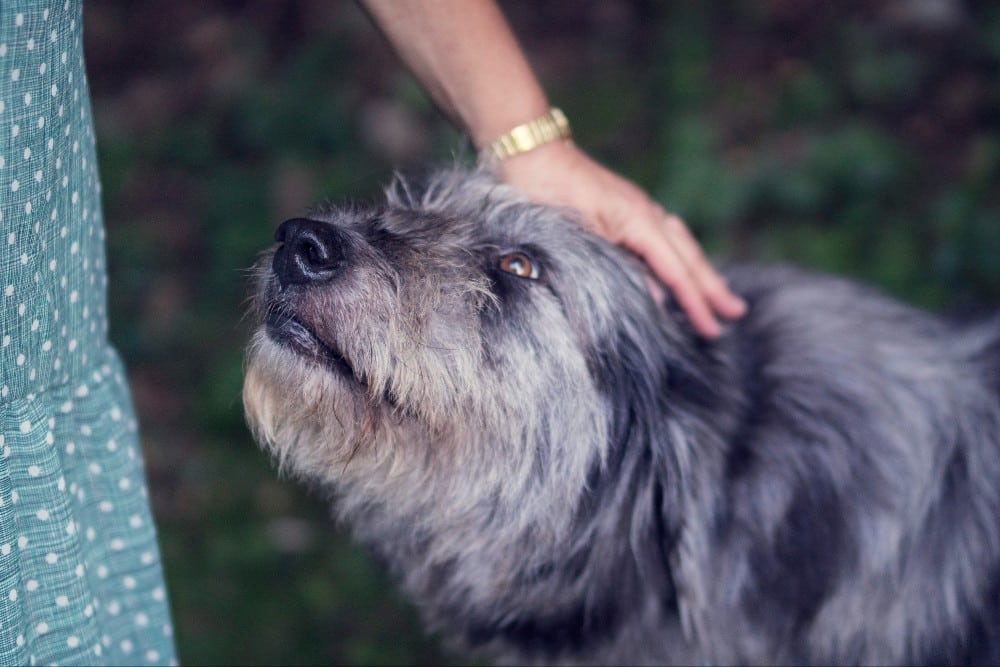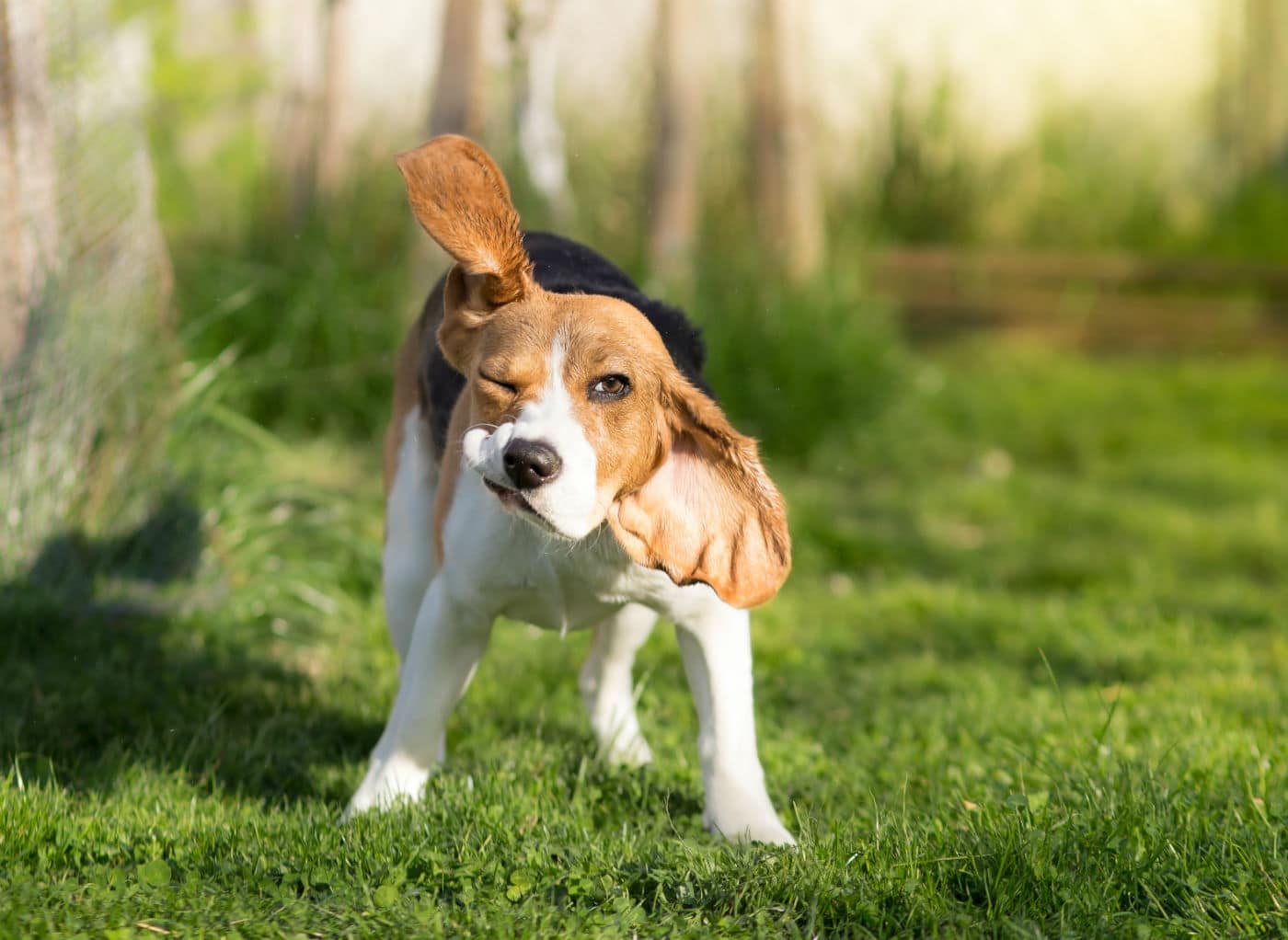You may think all dogs have stinky breath normally, but that isn’t true. Bad breath is usually an indicator of something wrong. The most common offender is dental disease, so if your dog’s kisses are smelly, it’s time for a visit to your veterinarian.
But what if your dog’s teeth look good, yet his breath still smells terrible? Or he’s just returned from having his teeth professionally cleaned, but his kisses still make you want to barf? The answer may be to look deeper for the source. Your dog’s bad breath could be pointing to a problem in your dog’s digestive tract.
The fact is that your dog’s gut has a huge impact on his overall health. And the reason for that is the billions and billions microscopic organisms that live there. While that may sound like something out of the movie Alien, it’s perfectly natural. Most of those little guys are harmless; some are even beneficial.
Related: Smelly Kisses? Here Are 4 Major Reasons Your Dog Has Really Bad Breath.
These teeny organisms are bacteria, fungi and viruses. In order to increase their chance of survival, they form “communities” known as the microbiome, in the respiratory tract, the mouth and the large intestines, with the majority inhabiting your dog’s gut.
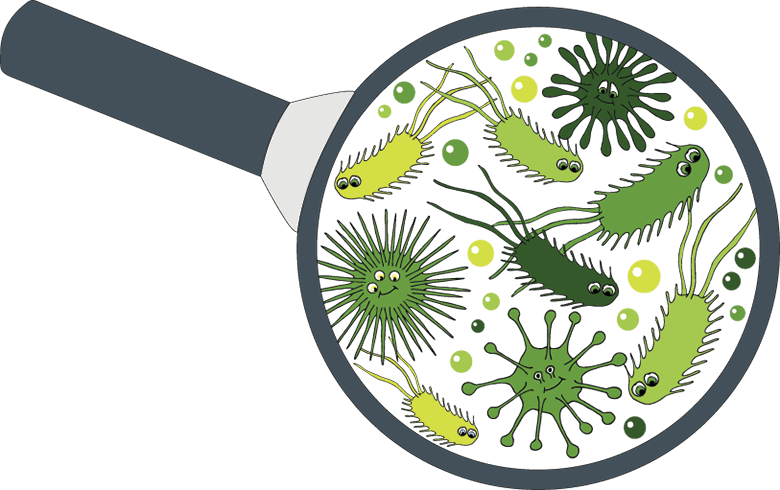
The microbiome is so critical for overall health that it’s been called “the forgotten organ.” When the ratio of good to bad bacterial in the intestines is balanced, it’s in a state called symbiosis. When it’s out of balance, it’s in a state of dysbiosis. The state of the microbiome affects everything in your dog’s body from digestion to the immune system.
“The microbiology of the gut is very important to the proper balance of overall health in the body,” says veterinarian Jim D. Carlson, holistic veterinarian and owner of Riverside Animal Clinic & Holistic Center. “The different types of bacteria are categorized as both good and bad, but if a healthy balance is maintained, proper digestion and absorption is maintained.”
When the microbiome is in symbiosis, it will protect the body from harmful pathogens such as fungi, yeast and parasites, as well as substances like toxins, drugs and allergens. It will produce enzymes that help digest the food as well as thiamin and the B vitamins that the body does not produce on its own. A healthy microbiome supports the immune system and actually boosts the emotional and cognitive centers of the brain.
So, what does that have to do with stinky dog breath?
The Gut-Breath Connection
When there is an imbalance in the normal biological systems, whether from a chemical, emotional, biological, or environment cause, it can result in a disruption of the digestive process and the absorption of nutrients, says Dr. Carlson.
For instance, “vomiting can result in very sour smelling breathing,” says Dr. Sara Ochoa, a veterinarian advisor for doglab.com and a practicing small animal and exotic veterinarian in east Texas. “Dogs also like to be very clean and will lick their bottoms to clean up the diarrhea. These two things can cause them to have very bad breath.”
She recommends rinsing the fur around their mouths to get the bile off their fur or brushing their teeth to reduce the resulting bad breath.
Sometimes the signs of gastrointestinal problems are not so obvious. “If there’s maldigestion or malabsorption, it creates a leaky gut and allows pathogens to permeate the wall of the intestine and enter the body through the lymphatic system,” says Dr. Carlson. “Then the pathogens can travel throughout the body. These chemicals can be released through the mouth in the form of an odor.”
Since there are a number of factors that can cause bad breath, from dental disease to diabetes and kidney disease, before you assume your dog’s gut is out a whack, make an appointment with your veterinarian.
“I typically suspect a GI problem when I look in the mouth and there’s minimal gingivitis, plaque or tartar,” says Dr. Carlson. “That’s a clue that it isn’t coming from a stinky mouth but from a deeper underlying problem — one that is usually within the gut.”
Related: 7 Natural Ways To Stop Bad Dog Breath
How to Treat Gut-Related Bad Breath
Depending on the cause, treatment will vary. If it’s gingivitis, a dental cleaning under anesthesia is necessary. Various medications, supplements and even dietary changes can alleviate bad breath resulting from diabetes and kidney disease, anxiety and environmental issues.
“There are many things that can be done to help keep your dog’s intestinal tract healthy,” says
Dr. Ochoa. She recommends adding probiotics to your dog’s diet to help maintain a balanced intestinal tract.
“Probiotics are live microorganisms that are normally found the intestines. When a dog takes them, it helps the normal intestinal flora rebalance itself,” says Dr. Ochoa. “Once the gastrointestinal tract is back in normal health, the smelly breath will usually go away.”
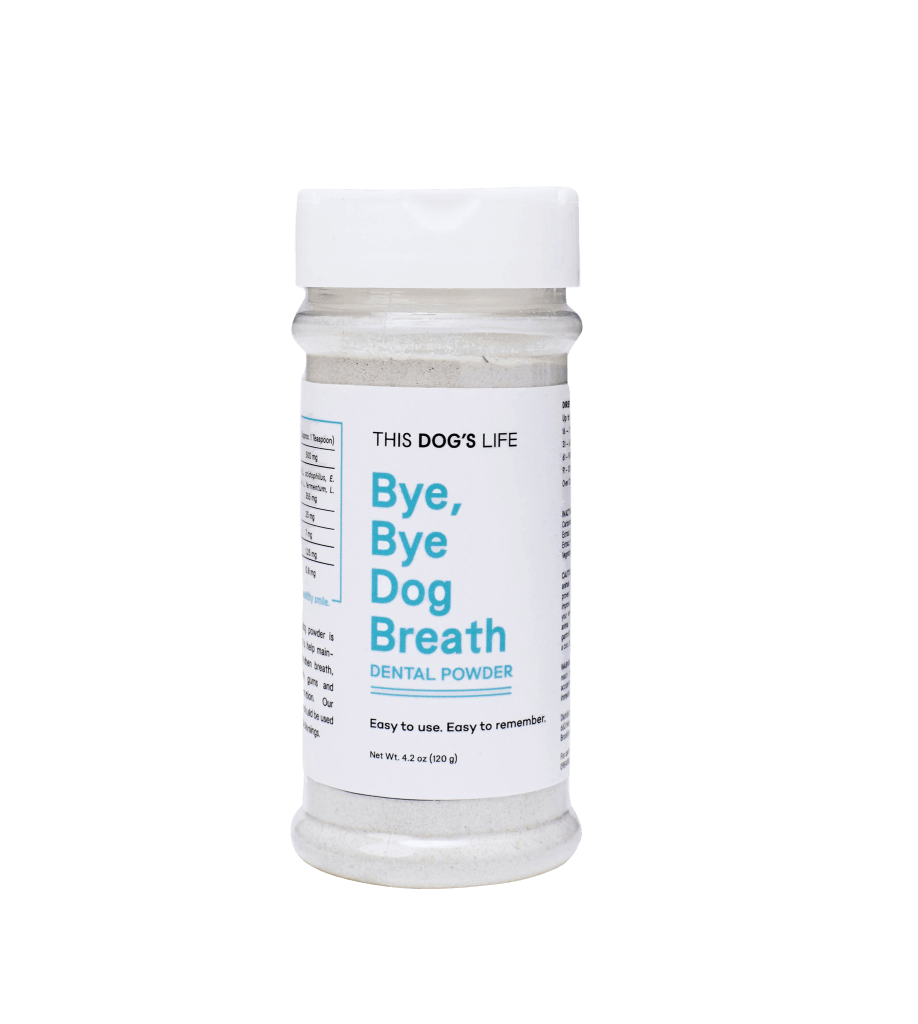
Changing your dog’s diet is also advised. “To keep a dog’s intestinal tract healthy, a minimal grain diet has the correct ratio of protein to carbohydrates,” says Dr. Carlson. “By minimizing the carbs, you keep the microbiome colony under control.”
That’s because animals that are herbivores, meaning they only eat plants, have a lot of bacteria in their digestive system to break down their food. But dogs are different, Dr. Carlson says. A dog’s digestive system is built to break down protein. “When you feed a dog plant material, you increase the bacteria in the gut, which causes the intestinal tract to slow down, and that leads to digestive problems. You never want the gut to slow down.”
He also recommends adding probiotics to your dog’s diet. “But make sure your pet is on a probiotic with strains that are specific for dogs, not another species.” It can’t hurt to brush your dog’s teeth either, he adds. The enzymes in dog toothpaste or oral sprays and gels promote healthy saliva, which helps eliminate odor causing bacteria.
Related: How To Stop Bad Dog Breath














